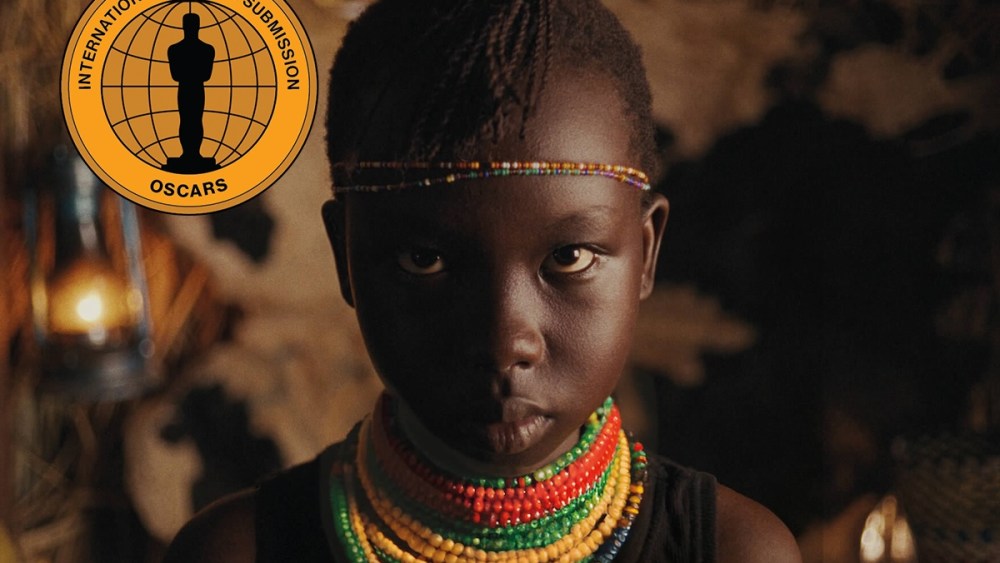Welcome to the Review of “Nawi” Movie
Discover the captivating story of a young girl’s struggle against patriarchal traditions in this compelling film.
Review
Watching “Nawi,” two things become quickly evident. First, a wonderful lead performance carries the film. Michelle Lemuya Ikeny plays the eponymous character, a 13-year-old who yearns to go to high school but instead must face the patriarchal traditions of her community. She’s set to be married off for a substantial dowry in livestock. Second, the creative team of Toby Schmutzler, Kevin Schmutzler, Vallentine Chelluget, and Apuu Mourine is so determined to make a salient point about child marriage that they deprive the film of its cinematic and entertainment value. In shifting focus to their political statement, the four co-directors fail to give their lead actor the showcase her strong performance demands.
Selected to represent Kenya at the Oscars, “Nawi” takes place in the rural region of Turkana in the northern part of the East African nation. It’s based on true events and begins with its steadfast and studious young protagonist earning top marks in her high school entrance exams. As she’s being celebrated by her teacher and friends, and as a TV news crew interviews her for her academic accomplishments, a plan is hatched by her father Eree (Ochungo Benson) to marry her off to a much older man.
Being the only daughter in her family, it falls upon her to save them and sacrifice herself in order that the price paid for the dowry can help sustain them. As she writes in her journal and the audience hears in voiceover, the price is “60 sheep, eight camels, 100 goats. No more, no less.”
Before the wedding, the film spends time showing Nawi’s patriarchal family construct and the complicated interrelationships within it. As head of household, Eree has two wives: Ekai (Nungo Marrianne Akinyi) and Rosemary (Michelle Chebet Tiren). Nawi was born to Rosemary, the second and younger wife. These early scenes build real drama and tension in the family. Both women believe Nawi’s place is as a wife and mother, totally buying into their community’s traditions.
Ekai is forthright and matter of fact about it, while Rosemary lovingly tries to convince Nawi to see the bright side, believing she could end up with a smart daughter just like she did. This mother-and-daughter dynamic is warmly portrayed, and the actors show palpable affection that explains how Nawi grew up to become courageous and graceful — she had lots of love and support. Additionally, Nawi has a poignant and playful relationship with her brother, Joel (Joel Liwan), even if they come from different mothers.
Throughout this setup, Ikeny holds the film together with a performance rich in emotional clarity. The directors choose to play many scenes on her face, capturing her reactions to whatever’s unfolding in copious close-ups. Ikeny is always watchable and manages to convey silently what her character is feeling.
Even as the screenplay runs out of ideas and resorts to obvious melodrama, Ikeny remains the sole reason to engage with “Nawi.” The character goes through a lot: she escapes, she tries to hitchhike to Nairobi, she becomes a mentor and teacher to a group of boys her age, and she has to make many critical decisions. Throughout this long journey, Ikeny shows Nawi as courageous, defiant, scared, and lost all at once.
However, even Ikeny’s performance cannot save the film once it hurtles to its conclusion. Where it had begun as a character study, “Nawi” fades out to become a rather rote PSA. The film loses artistic merit and dramatic credence as it desperately tries to make a point about child marriage.
Conclusion
In conclusion, while “Nawi” showcases a powerful lead performance and delves into the complexities of child marriage, it ultimately falls short in its execution by prioritizing its political message over cinematic storytelling.
FAQs
1. What is the setting of the movie “Nawi”?
The movie is set in the rural region of Turkana in Kenya, showcasing the challenges faced by a young girl in a patriarchal community.
2. Who plays the lead role in “Nawi”?
Michelle Lemuya Ikeny delivers a remarkable performance as the titular character, portraying the struggles and resilience of a 13-year-old facing child marriage.
3. What is the central conflict of the film?
The central conflict revolves around Nawi’s desire to pursue education and escape the traditional expectations of her community, particularly being forced into marriage at a young age.
4. How does the film portray family dynamics?
5. What makes Michelle Lemuya Ikeny’s performance standout? 6. What issues does the film address? 7. How does the film approach its social message? 8. What are some standout moments in the film? 9. How does “Nawi” conclude? 10. What is the overall impact of “Nawi” on its audience?

